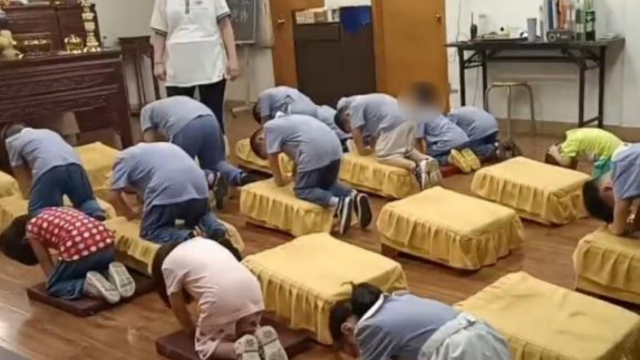
A previously little-known agreement between Switzerland and China allowing Chinese officials access to Chinese nationals applying for asylum in the European country has come up for renewal, prompting concerns that the law may be used to expel Tibetans and other ethnic minorities fleeing persecution by Beijing.
The document, first signed in 2015 and never officially published, was revealed this week by the Swiss NZZ am Sonntag news site, and immediately drew criticism from Swiss lawmakers and other observers who called for the agreement to be withdrawn.
Nicolas Walder, a Swiss member of parliament, described himself as shocked by the news of the agreement’s existence, telling RFA’s Tibetan Service that it had never been put forward for discussion in Swiss civil society or parliament or by the Swiss people themselves.
“I’m personally very much against that agreement, because it raises questions about the protection of people seeking asylum or seeking protection in Switzerland, even if the Administration gives us some guarantee that information about Tibetans and Uyghurs will not be shared with the central Chinese government,” Walder said.
Asking Chinese officials to come to Switzerland to determine the identity of persons escaping persecution in China “is like asking a criminal to come and check to see if a victim is really a victim,” Walder said, pointing to what he called China’s poor record on human rights.
“I’m also quite worried about other Chinese people,” Walder said.
“You know, you have a lot of political activists defending human rights, defending the environment. They may not be part of a minority, but they still need protection. We’ll ask the government not to sign the extension of that agreement,” Walder said.
A close look at claims
Reached for comment, Lucas Rieder—spokesperson for Switzerland’s State Secretariat for Migration (SEM)—told RFA that Swiss authorities look closely at the claims made by Chinese nationals seeking asylum in the country, and that the role Chinese officials invited to the country to investigate is only to confirm their identity.
“Swiss authorities scrupulously examine each asylum application individually. If any sign of persecution is detected or suspected, asylum seekers will not get returned to their country of original,” Rieder said, adding, “The protection of the rights of the concerned individuals is of the highest importance to the Swiss authorities.”
Citing data from SEM, NZZ am Sonntag said the agreement between Switzerland and China has so far been implemented only once, leading to the deportation of 13 individuals, including four persons applying for asylum, after a Chinese delegation visited the country to identify them in 2016.
Even though the Swiss government says that the 2015 agreement won’t affect Tibetans and Uyghurs, “many questions have been raised, and there are looming doubts among the public,” said Tethong Wangpo, a Swiss-Tibetan and member of the Dharamsala, India-based Tibetan Parliament in Exile.
“How do they determine the lists of the people to be deported? How would they separate Tibetans and Uyghurs from ‘Chinese nationals’? And how are these investigations conducted, and by whom?’ Wangpo asked.
Wangpo noted that Fabian Molina, a Swiss MP from the Social Democratic Party, and long-time Tibet supporter and lawmaker Sibel Arslan have promised to look into the issue in the coming days. “But we don’t know what will happen,” he said.
“We hope that the Swiss government will not fall under the influence of the Chinese Communist Party’s far-reaching expansionist agendas, not just for the sake of the Tibetans but also for the people of Switzerland themselves,” he said.
Switzerland is home to more than 100,000 refugees and also hosts key United Nations rights bodies, including the UN Refugee Agency and the Office of the High Commissioner for Human Rights.
Reported by Tashi Wangchuk and Rigdhen Dolma for RFA’s Tibetan Service. Translated by Tenzin Dickyi. Written in English by Richard Finney.
Source: Copyright © 1998-2016, RFA. Used with the permission of Radio Free Asia, 2025 M St. NW, Suite 300, Washington DC 20036. https://www.rfa.org.












